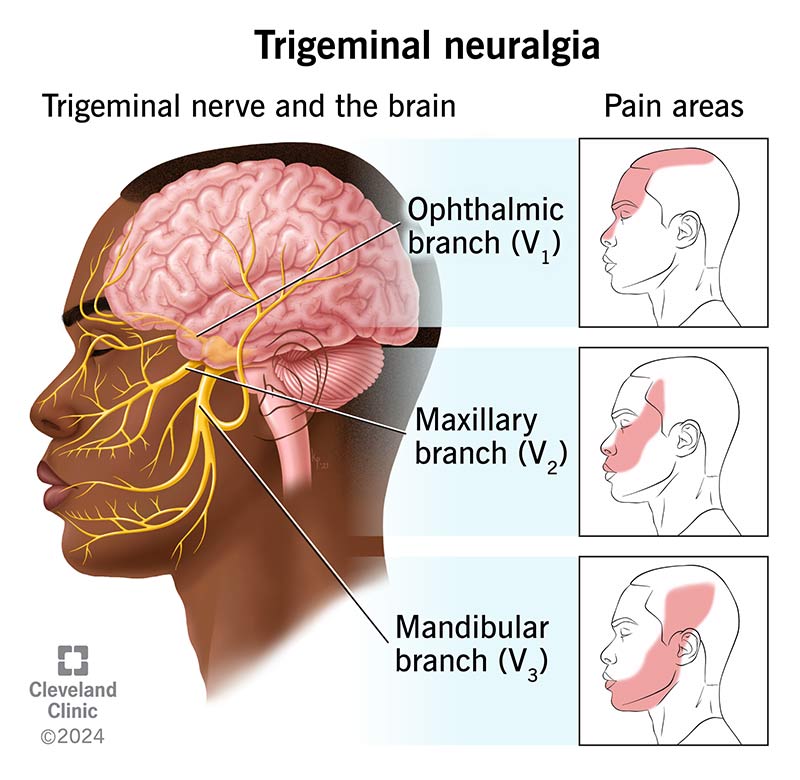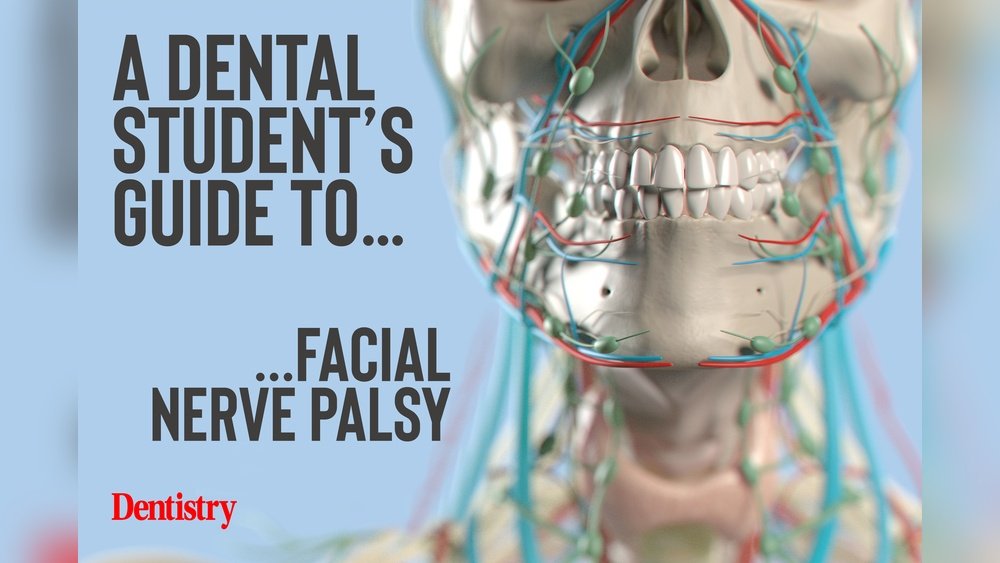Have you ever experienced sudden facial numbness right after a nerve block or dental work? It can be alarming and confusing to feel your face go numb or weak, especially when you weren’t expecting it.
You might wonder if this is normal, how long it will last, or if it signals something more serious. Understanding why facial numbness happens after dental procedures and what to expect can help ease your mind and guide you on the right steps to take.
You’ll discover the common causes of facial numbness after nerve blocks or dental treatments, how long it usually lasts, and when you should seek further care to protect your health. Keep reading to get the clear answers you need and regain confidence in your dental care.

Credit: crystallinedental.com
Common Causes Of Facial Numbness
Facial numbness after dental work or a nerve block can feel alarming. Understanding the common causes helps ease concerns and guides proper care. Several factors may lead to numbness, ranging from temporary effects to more serious nerve issues. This section explains the main reasons behind facial numbness following dental procedures.
Local Anesthetic Effects
Local anesthetics block nerve signals to reduce pain during dental work. This blockage causes temporary numbness in the face or mouth. The numbness usually fades within a few hours as the anesthetic wears off. It is the most frequent and harmless cause of facial numbness after dental treatments.
Nerve Trauma During Procedures
Sometimes dental tools can accidentally touch or irritate facial nerves. This direct nerve trauma can cause longer-lasting numbness or weakness. The injury may result from injections, drilling, or tooth extractions near sensitive nerve areas. Recovery depends on the injury’s severity and may take weeks or months.
Inflammation And Swelling
Dental procedures may cause inflammation and swelling near nerves. Swollen tissues can press on nerves and disrupt their function. This pressure leads to numbness, tingling, or discomfort in the face. Reducing swelling through medication or cold packs often helps restore sensation quickly.
Viral Reactivation And Bell’s Palsy
In rare cases, dental work can trigger dormant viruses like herpes simplex. This activation may cause Bell’s palsy, a sudden weakness or paralysis of facial muscles. Bell’s palsy often includes numbness and requires medical attention. Recovery varies but usually improves within weeks with proper treatment.

Credit: www.sciencedirect.com
Temporary Vs Prolonged Numbness
Facial numbness after nerve blocks or dental work can feel alarming. It may be temporary or last longer than expected. Understanding the difference helps to manage concerns and know when to seek help. This section explains temporary versus prolonged numbness and what to expect during recovery.
Duration Of Anesthetic Impact
The numbness from dental anesthetics usually lasts a few hours. This effect is normal and fades as the medication leaves the body. Most patients regain full sensation within 2 to 6 hours after treatment. During this time, the face may feel heavy or tingling.
Temporary numbness occurs because the anesthetic blocks nerve signals. It does not harm the nerve permanently. Patients should avoid chewing or biting the numb area to prevent injury. Drinking warm liquids can help return feeling faster.
Signs Of Prolonged Nerve Damage
Numbness lasting more than 24 hours may signal nerve irritation or injury. Other signs include weakness, tingling, or burning sensations. Pain in the jaw or face that worsens over time also requires attention.
Severe or persistent numbness might point to nerve trauma caused during the procedure. Swelling or inflammation around nerves can delay healing. Rarely, infections or viral reactivation may cause prolonged symptoms.
Recovery Timelines
Most patients recover normal feeling within days or weeks. Minor nerve injuries heal gradually as the nerve repairs itself. In these cases, numbness reduces day by day.
Severe nerve damage can take months to improve. Physical therapy or medications may assist recovery. If numbness persists beyond three months, consulting a specialist is important.
Identifying Nerve Injury Types
Facial numbness after nerve block or dental work may signal nerve injury. Identifying the type of nerve injury helps in understanding possible outcomes and treatment paths. Nerve injuries vary by severity, affecting recovery time and symptoms. Recognizing these differences supports better care and patient awareness.
First Degree Injury
First degree injury is the mildest nerve damage type. It involves temporary loss of nerve function without structural damage. The nerve remains intact but does not send signals properly. This injury usually heals quickly, often within days to weeks. Common causes include pressure or mild stretching of the nerve during dental work.
Second And Third Degree Injuries
Second degree injury damages the nerve’s protective covering but not the nerve fibers themselves. This injury causes longer-lasting numbness or weakness. Healing takes more time and may be incomplete. Third degree injury is more severe, damaging both nerve fibers and coverings. This injury often requires medical intervention and may lead to permanent loss of sensation or movement.
Symptoms And Severity
Symptoms depend on injury type and location. First degree injuries cause mild numbness or tingling. Second and third degree injuries lead to intense numbness, weakness, or pain. Severe injuries can cause muscle paralysis or loss of facial expression. Early detection and treatment improve recovery chances. Persistent symptoms need prompt medical evaluation.

Credit: my.clevelandclinic.org
When To Seek Medical Attention
Facial numbness after a nerve block or dental work can be unsettling. Most numbness fades as anesthesia wears off. Sometimes, numbness lasts longer or comes with other symptoms. Knowing when to seek medical attention is key to avoiding complications. Prompt action can prevent lasting damage and speed recovery.
Persistent Numbness Or Weakness
Numbness that lasts more than a few hours needs medical review. Weakness on one side of the face is also a warning sign. These symptoms may indicate nerve injury or inflammation. Early diagnosis helps guide proper treatment. Do not ignore ongoing numbness or muscle weakness.
Immediate Concerns Post-procedure
Severe pain, swelling, or sudden facial drooping require urgent care. Difficulty speaking, swallowing, or closing your eye signals serious problems. These signs may point to nerve damage or infection. Seek emergency help if these symptoms appear right after dental work. Quick response reduces the risk of permanent issues.
Specialist Consultations
Your dentist may refer you to a neurologist or oral surgeon. Specialists assess nerve function and suggest tests like nerve conduction studies. They provide treatments tailored to nerve injuries. Follow-up visits ensure your recovery stays on track. Early specialist input improves outcomes for facial numbness after dental procedures.
Relief And Treatment Options
Facial numbness after nerve block or dental work can be unsettling. Finding relief fast improves comfort and aids recovery. Treatment depends on numbness cause and severity. Options range from simple medications to surgery. Early care often prevents long-term issues and helps nerves heal.
Medications And Therapies
Medications ease nerve pain and reduce inflammation. Doctors may prescribe pain relievers or anti-inflammatory drugs. Sometimes, antiviral medicine helps if a virus triggers numbness. Therapies like nerve blocks or steroid injections can speed recovery. Regular follow-up ensures treatment works well and adjusts as needed.
Physical Rehabilitation
Physical therapy helps restore facial movement and sensation. Gentle exercises improve muscle strength and nerve function. Therapists guide patients through safe routines for faster healing. Massage may reduce swelling and improve blood flow. Consistent rehab supports nerve repair and prevents stiffness.
Surgical Interventions
Surgery is rare but needed for severe nerve damage. Doctors may repair or decompress injured nerves. Procedures aim to relieve pressure and restore nerve signals. Surgery risks are explained clearly before treatment. Post-surgery care and rehab are important for full recovery.
Preventing Facial Numbness In Dental Care
Preventing facial numbness after dental care is essential for patient comfort and safety. Dentists use techniques to lower the risk of nerve injury. Proper care before, during, and after procedures helps avoid numbness. Understanding key practices can improve outcomes and reduce complications.
Safe Anesthetic Practices
Using the right anesthetic dosage is critical. Overuse can increase nerve pressure and cause numbness. Injecting slowly and precisely limits the chance of nerve injury. Dentists avoid areas close to major nerves. Choosing appropriate anesthesia types minimizes side effects. Careful preparation and technique protect facial nerves.
Nerve Monitoring Techniques
Some dentists use nerve monitoring during procedures. This technology tracks nerve signals in real-time. It helps detect nerve irritation or damage early. Adjustments can be made quickly to prevent lasting numbness. Monitoring ensures safer dental injections and surgeries. These methods improve patient safety and care quality.
Patient Communication And Aftercare
Clear communication helps patients understand risks and symptoms. Dentists explain what numbness might feel like and when to report it. Patients receive instructions for care after procedures. Proper aftercare supports nerve healing and reduces complications. Follow-up visits check for any lasting effects. Educated patients are better prepared to manage recovery.
Frequently Asked Questions
Can Dental Work Cause Facial Numbness?
Dental work can cause facial numbness by irritating or injuring nearby nerves during procedures. This numbness is usually temporary. Prolonged numbness may indicate nerve damage requiring medical evaluation and treatment.
How Long Does Facial Paralysis Last After Dental Work?
Facial paralysis after dental work usually lasts a few hours to days as anesthesia wears off. Severe nerve damage may cause weeks to months of recovery. Seek medical advice if paralysis persists beyond a few days.
What Are The Symptoms Of Nerve Damage After Dental Injections?
Symptoms of nerve damage after dental injections include facial numbness, tingling, burning sensations, and temporary or prolonged paralysis. Pain, weakness, or altered sensation in the lip, tongue, or chin may also occur. Seek medical advice if symptoms persist beyond a few hours or worsen.
Can Dental Numbing Cause Facial Paralysis?
Dental numbing can cause temporary facial paralysis by blocking nerve signals. Rarely, nerve injury or inflammation leads to prolonged paralysis. Most cases resolve within hours or days as anesthesia wears off. Seek medical advice if paralysis persists beyond this period.
Conclusion
Facial numbness after nerve blocks or dental work usually fades quickly. Most cases clear up within hours or days as anesthesia wears off. Sometimes, numbness lasts longer due to nerve injury or swelling. Persistent numbness needs medical attention to avoid lasting damage.
Early check-ups help find problems and start treatment fast. Understanding these risks can ease worry after dental procedures. Always follow your dentist’s advice and report unusual symptoms right away. Taking care of your nerves helps ensure a smooth recovery and better oral health.
 Skip to content
Skip to content 